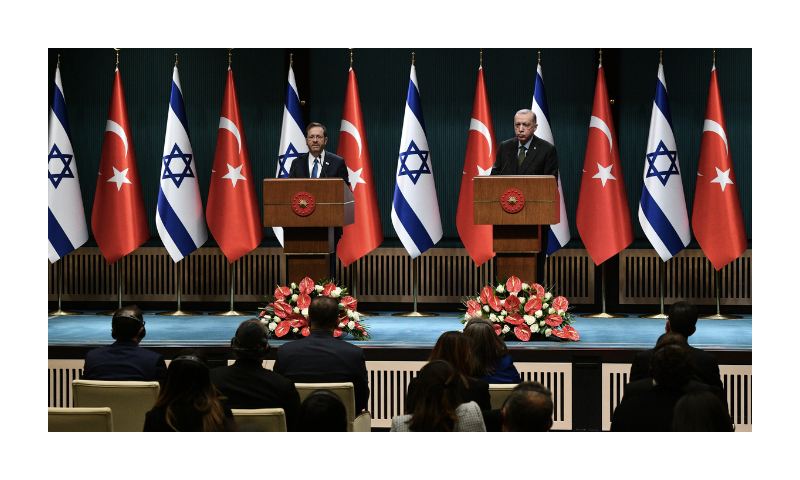***
Salim Çevik
Arab Center, Washington DC, Aug. 31, 2024
“Erdoğan began to face increasing criticism regarding trade with Israel after October 7.”
Prior to the Hamas attack on October 7, Turkey was in the process of political reconciliation with Israel. Israeli President Isaac Herzog visited Turkey in 2022 in the first high-level visit by an Israeli official since 2008, and Turkish President Recep Tayyip Erdoğan and Israeli Prime Minister Benjamin Netanyahu met face-to-face at the United Nations in New York in September 2023. So, when the Hamas-Israel war first broke out on October 7, Turkey’s tone was quite measured. Erdoğan was careful not to damage his relations with Israel, which could also potentially jeopardize his reconciliation with the Middle East region and the West. More importantly, he wanted to mediate in the conflict, hoping that his recent reconciliation with Israel and good relations with Hamas would place him in an ideal position, as happened with his earlier role in the Russia-Ukraine war. However, it soon became clear that he could not play a similar role, mostly due to Israel’s reluctance, which led him to change his tone and start voicing his criticism of Israel.
But despite the harshness of his criticism, Erdoğan did not initially take any concrete measures against Israel—like cutting diplomatic relations—but only retaliated against its withdrawal of its ambassador from Ankara. He also expressed his readiness to continue reconciliation with post-Netanyahu Israel, which Erdoğan apparently hoped would be realized soon. Moreover, unlike in previous crises, Erdoğan was careful not to criticize any Arab country for not being sufficiently supportive of the Palestinians, implying that he intends to preserve the reconciliation process that he initiated several years ago and which, in addition to Israel, involves Egypt, the United Arab Emirates, and Saudi Arabia.
Erdoğan also refrained from cutting economic ties with Israel, despite growing public pressure to do so. In fact, the preservation of economic ties was not unexpected for Erdoğan, since during the decade of Turkish-Israeli tensions, trade was never affected by the almost constant political crisis in bilateral relations. On the contrary, trade increased from around $3.5 billion in 2010 to over $9 billion in 2022 and has always been seen as the last bastion of bilateral relations. It is worth noting that this bilateral trade has largely favored Turkey, which ran a trade surplus of around $5 billion in 2022.
… [To read the full article, click here]


